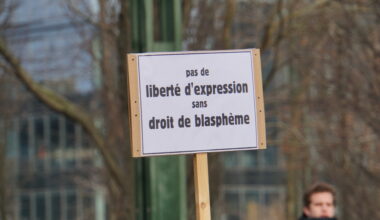Ever since the terrorist attacks on the US and Europe in the 2000s, an essential part of the social-political discourse in the UK has comprised discussions about how to protect people from falling prey to Islamist views and radicalisation. Unfortunately, the propagation of Salafi jihadist ideology continues to be rife in Britain. This means that the threat of radicalisation in certain sections of society is still present.
Moreover, with the widespread use of the internet as a propaganda tool, the number of channels through which young people can be radicalised and recruited to commit crimes has multiplied. Extremists today use social media to perpetuate myths about their religious and political supremacy.
It is no coincidence that ISIS managed to recruit thousands of young men and women beyond the borders of Syria and Iraq. They brainwashed people through online speeches and videos based on distorted realities. Extremist propaganda material remains available online and offline, and extremists use it to radicalise people.
In 2020, the national coordinator for the Prevent counterextremism programme, Chief Superintendent Nik Adams, warned that young and vulnerable people, including those with mental health issues, were being exploited. In his view, as reported in the Independent, ‘terrorists who “self-radicalise” using online material are a now a greater threat to the UK than those directed by Isis.’
Such a situation requires frontline efforts to counter both online and offline threats of radicalisation. The UK Government’s 2011 counter terrorism strategy, ’Prevent‘, was designed to stop people from being drawn into radical Islamic and far-right extremism alike through dialogue and rehabilitation efforts.
The objectives of Prevent included the need to ‘respond to the ideological challenge of terrorism’ and its promoters; to ‘prevent people being drawn into terrorism’ and give those who were affected ‘advice and support’; and to ‘work with sectors and institutions where there are risks of radicalisation’ (3.21).
However, Prevent faced strong resistance in certain quarters, including from some British Muslim individuals and organisations. For instance, in 2015, the former chief superintenant with the Metropolitan police, Dal Babu, said that that ‘most Muslims are suspicious of the scheme and see it as a tool to spy on them,’ according to a report in the Guardian. For Babu, Prevent had become a ‘toxic brand’.
In a joint letter to the Guardian in 2016, a group of around 380 academics, lawyers, students and others argued that Prevent ‘damages the fabric of trust in our society, silences Muslims and dissent, and institutionalises Islamophobia at a time when the far-right is gaining influence in many parts of Europe.’ But this analysis was arguably wrong, because it does not represent the ground realities.
The former chief crown prosecutor Nazir Afzal, a British Muslim who lives in Birmingham, has been a strong supporter of Prevent. He argued in an interview with The Times in 2017 that ‘Prevent is simply safeguarding… It’s not about criminalising. It has done phenomenally good work. It’s stopped at least 150 people from going to Syria, 50 of them children.’
As reported in another Times article from 2017, Afzal warned that there was an ‘”industry” of Muslim groups’, such as Cage and Prevent Watch, which were ‘spreading misinformation about the Prevent strategy.’ According to the same article, ‘Critics have called the organisation [Cage] apologists for terror.’ [The article is currently the subject of a legal complaint from MEND, which has itself been accused of promoting Islamism – Ed.]
Altogether, it seems next to impossible to reach a consensus on how to use Prevent so as to effectively deal with the radicalisation of young and vulnerable Muslims. For now, they remain at risk.
Clearly Prevent is no silver bullet. It needs to be constructively revisited, scrutinised and reformed from time to time like any other policy. However, scrapping a policy based on mere assumptions and unfounded fears is arguably short-sighted, especially when the threat posed by Islamist ideology remains alarming in the UK. In 2021, MI5 Director General Ken McCallum said in his annual threat update that ‘alongside all the focus rightly being given to State Threats, Islamist Extremist Terrorism remains a potent, shape-shifting threat.’
The extremist ideology does not need a territory to establish its dominion. The Islamic state might have fallen in Syria, but there are still individuals in the UK and abroad who are deeply influenced by their radical religious ideology and who remain loyal to the cause of establishing a Caliphate. This increases the threat of individual radicalisation.
According to Matt Jukes, Assistant Commissioner at the Metropolitan Police and Head of their Counter-Terrorism Policing Unit, ‘while some recent attacks have been carried out by asylum seekers, the majority of the terrorist threat to the UK is home-grown, and posed by British-born extremists.’ This demonstrates the urgent need to address religious radicalisation within the country.
Narratives such as the idea of ‘western imperialism’, the claim that ‘Islam is under siege’ and that ‘Western society is hostile to Islam and Muslims,’ are relentlessly peddled by radical preachers. Their aim is to alienate vulnerable young Muslims and push them down the path of violence and revenge. Such preachers also advance conspiracy theories, including the influence of the Jews over international media, and advocate wife-beating and the ideology of the ‘jihad against the infidel West.’
One Muslim cleric, Abubaker Deghayes, while addressing the congregation of a mosque in Brighton, is reported as saying, ‘Jihad by fighting by sword, this jihad is compulsory upon you.’ Following a trial at the Old Bailey, he was recently convicted of encouraging terrorism.
In January 2022, Malik Faisal Akram, a British national, reportedly took four Jewish people hostage at a synagogue in Colleyville, Texas, in a bid to secure the release of Aafia Siddiqui, a convicted terrorist. The incident was described by US President Joe Biden as ‘an act of terror,’ and by UK Foreign Secretary Liz Truss as ‘an act of terrorism and anti-Semitism.’ However, mere condemnations are not enough. What is needed is for society to address the crucial question of what drew Akram to commit this crime in the first place.
Akram was not an isolated fan of Siddiqui, or merely an anti-Semite who travelled to the United States from the UK to witness Siddiqui’s glorious release. Rather, his actions were motivated by religious devotion: his last conversation with his brother in the UK, in which he ‘promised’ that he would ‘go down a martyr,’ demonstrates that he was a product of the same toxic rhetoric that manipulates religious discourse to gain leverage and influence. His case illustrates the way in which Islamist radicalisation is not only divorced from reason, but also lacks compassion and empathy towards fellow human beings who happen not to be Muslims.
Impressionable young people who listen to radical preachers may grow up to distrust their fellow citizens and governments. Some disturbing examples of this phenomenon have been uncovered by Ed Husain, a former radicalised Muslim. Husain, who is now an author, political advisor, and Professor at the Walsh School of Foreign Service in Georgetown University, presented these findings in Among the Mosques: A Journey Across Muslim Britain, published by Bloomsbury in June 2021.
Husain shows how mosques in the UK are exerting control over Muslim-dominated areas such Bolton, Dewsbury, Bradford, Birmingham, and Blackburn. In these areas, a Taliban-like lifestyle is widely followed by orthodox Muslims. According to Husain, nearly 50 per cent of the mosques in the UK are controlled by the Deobandis – the radical Islamist sect which has inspired and created terror organisations such as the Taliban in Afghanistan.
Concerns about the radicalisation taking place in certain British mosques and madrassas have been raised in the past. But because there is such sensitivity around multiculturalism and relations between Muslims and the rest of British society, these concerns have often been overlooked or dismissed. More moderate or pluralist Muslims, such as Qanta Ahmed, have found themselves being criticised for ‘speak[ing] up against political Islam’ by organisations such as the Muslim Council of Britain, which Ahmed describes as ‘highly politicised’.
Back in 2015, David Cameron, then Prime Minister, announced a crackdown on madrassas attached to mosques in a speech to the annual Conservative party conference. According to a report in the Guardian, Cameron claimed that ‘pupils in some madrasas were taught not to mix with children from other religions, were beaten, and fed conspiracy theories about Jewish people.’
Cameron’s announcement prompted outrage among so-called representatives of the Muslim communities. Sheikh Ibrahim Mogra of the Crown Hills madrassa in Leicester, for example, said that the proposal to register madrassas and require them to be inspected by Ofsted would be ‘seen as once again picking on the Muslim community because of the actions of the few,’ according to the Guardian.
Extremist ideologies have not gone away. In 2021, the Manchester Arena Inquiry held an evidence session into the conduct of Didsbury Mosque, which had been attended by Salman Abedi, the Manchester Arena bomber responsible for the deaths of twenty-two and the injury of many more on 22 May 2017. The chairman of Didsbury Mosque, Fawzi Haffar, ‘denied that the mosque…had issues with extremism’, according to a National Secular Society report.
However, in a statement issued by their solicitors, the families of the victims reproached Haffar for his ‘complacency’, responding that, ‘Whilst there is no evidence that Manchester Islamic Centre and Didsbury Mosque played a direct role in radicalising Salman Abedi, it is clear that they failed in the years before the bombing to take adequate steps to challenge extremist ideology.’
As reported on the BBC, the same inquiry was also informed that a ‘significant’ amount of extremist material supporting the Islamic State was found in the possession of Salman Abedi’s elder brother, Ismail, when he was a teacher at Didsbury Mosque, ‘including music encouraging suicide missions.’ A former imam, Mohammed El-Saeiti, had given a ‘sermon speaking out against terrorism and Islamic extremism at the mosque’ while Salman Abedi was there, according to the Manchester Evening News. He subsequently ‘received death threats on social media over his address.’ His evidence was disputed by the mosque.
The glorification of jihad through religious sermons as a way of inciting gullible young people to violence remains a matter of concern not just in the UK but across Europe. In France, for instance, three mosques were recently shut for varying periods because of charges including the spreading of Islamist propaganda and anti-Semitic remarks. In late 2021 the interior minister, Gérald Darmanin, also announced a crackdown on 76 mosques suspected of being ‘breeding grounds of terrorism.’
In Austria, after an Islamist killed four people in a deadly attack in Vienna in 2020, the authorities have been taking steps to fight ‘political Islam’. Some have criticised these as likely to marginalise Muslim civil society: as with Prevent, finding an approach that will gain general acceptance is fiendishly difficult.
Religious beliefs can be a force for good or bad. On the bad side, they can be used to brainwash vulnerable people and drag them down to the path of violence in the name of defending their faith.
What is urgently needed in Britain in 2022 is an honest and transparent debate among public authorities, the media and other relevant parties about Islamist radicalism and how best to counter it. Adopting a strategy of appeasement to avoid seemingly unpleasant situations only encourages extremists to continue spreading their invidious ideology. It also increases the possibility of more situations like the Batley Grammar case, in which an RS teacher was suspended by his school, in response to pressure from an angry mob of protesters, for showing ‘blasphemous’ cartoons in the classroom.
In the long term, appeasing religious extremists will not lead to greater harmony and integration between people of different cultures and beliefs, who have to learn to live together somehow. This is because Islamist extremism, just like far right nationalism, seeks to drive a wedge between different ‘identities’ and exploit people’s fear of reprisal.
The problem is that failing to intervene in minority communities, including Britain’s Muslim communities, out of a mistaken notion of tolerance, will harm those who most need protecting – the young and the vulnerable.








1 comment
The terminology of this article is part of the problem. The use of “Islamist” rather than “Islamic” etc. What it fails to recognise is the basic nature of Islam-sharia as revealed by this judgement summary by the ECHR:
“Noting that the Welfare Party had pledged to set up a regime based on sharia law, the Court found that sharia was incompatible with the fundamental principles of democracy as set forth in the Convention. It considered that “sharia, which faithfully reflects the dogmas and divine rules laid down by religion, is stable and invariable. Principles such as pluralism in the political sphere or the constant evolution of public freedoms have no place in it”. According to the Court, it was difficult to declare one’s respect for democracy and human rights while at the same time supporting a regime based on sharia, which clearly diverged from Convention values, particularly with regard to its criminal law and criminal procedure, its rules on the legal status of women and the way it intervened in all spheres of private and public life in accordance with religious precepts.”
Annual Report 2003
http://www.echr.coe.int/Documents/Annual_report_2003_ENG.pdf
This follow-up report by the Council of Europe in 2016 is even more damning:
“For the purposes of this study, it is essential to define Sharia law, its sources, its legal force and its
problematic aspects in terms of the European Convention on Human Rights.
Sharia law is understood as being ‘the path to be followed’, that is, the ‘law’ to be obeyed by every Muslim.
The prescriptions of Sharia law originate in the Qur’an, held to be a work that is ‘perfect and unchangeable’. The Qur’an constitutes the primary source of law…
In this study I shall be looking at the general principles of Sharia law…
In Islamic family law, men have authority over women. Surah 4:34 states: ‘Men have authority over women because God has made the one superior to the other, and because they spend their wealth to maintain them. Good women are obedient. They guard their unseen parts because God has guarded them. As for those from whom you fear disobedience, admonish them and forsake them in beds apart, and beat them. Then if they obey you, take no further action against them. Surely God is high, supreme….
In criminal cases, cruel, inhuman and degrading punishments are authorised by Sharia law, including death by stoning, beheading and hanging, amputation of limbs, and flogging…
Apostasy results, firstly, in the apostate’s civil death, with the estate passing to the heirs, and, secondly, in the apostate’s execution if he or
she does not recant.
non-Muslims do not have the same rights as Muslims in civil and criminal
[sharia] law which is discrimination on the ground of religion within the meaning of Article 14 of the Convention.
[This is functionally no different to the Nuremberg laws]
http://www.assembly.coe.int/Committee/JUR/ajdoc282016.pdf
This report resulted in the passing of Council of Europe resolution 2253 (22/01/2019) which states:
The Assembly considers that the various Islamic declarations on human rights, adopted since the 1980s, while being more religious than legal, fail to reconcile Islam with universal human rights, especially insofar as Sharia is their unique source of reference.
Paragraph 6 states which articles of the HR convention are contravened by sharia (10 of the 15 primary articles)
https://assembly.coe.int/nw/xml/XRef/Xref-XML2HTML-en.asp?fileid=25353
The UK FCO delegation voted for that resolution.
The final point to be made here is that the ONLY definition of jihad in Islamic law is as this US military briefing note states:
“to war against non-Muslims … signifying warfare to establish Islam”
https://www.esd.whs.mil/Portals/54/Documents/FOID/Reading%20Room/Joint_Staff/13-F-0117_DOC_09-course-materials-perspectives-on-Islam_and_Islamic_radicalism.pdf
Until the above facts are recognised as the starting point for any discussion of Islamic radicalism, we will be going down blind alleys and following false trails.
Your email address will not be published. Comments are subject to our Community Guidelines. Required fields are marked *
Donate